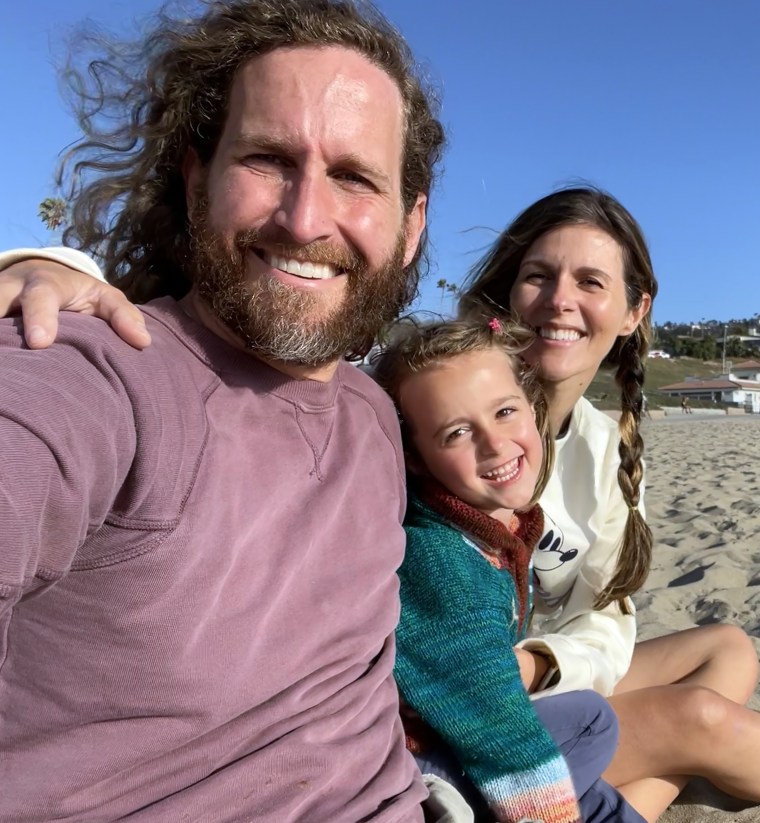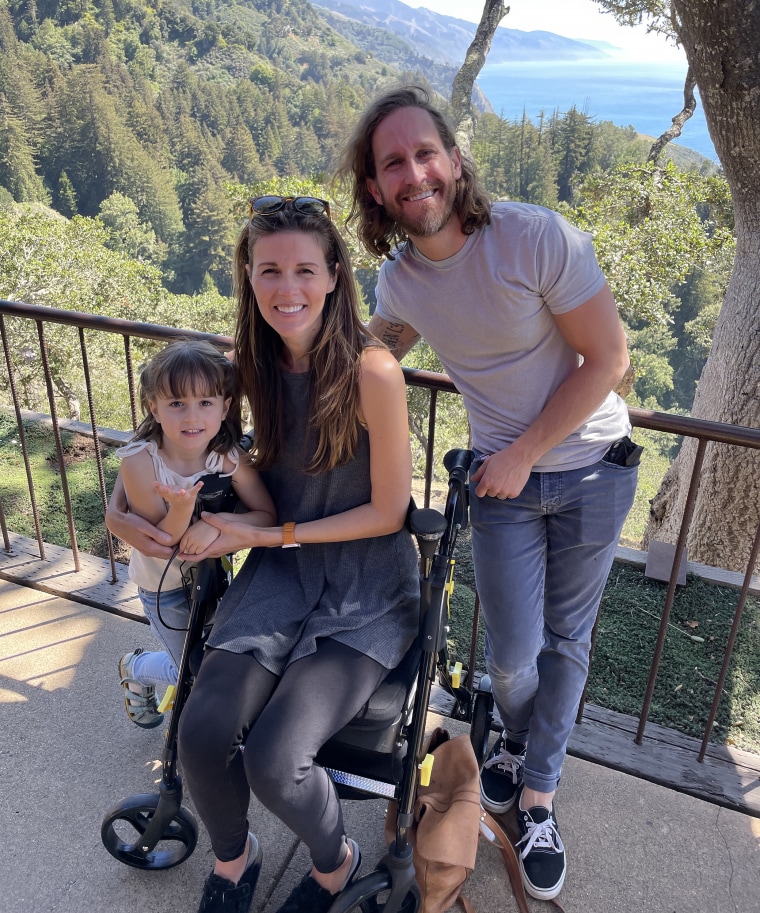When I was diagnosed with a rare degenerative neurological disease the day before Christmas Eve last year, my entire perspective around the words “be grateful” changed. There is no cure for my disease, which is called RFC1/CANVAS Syndrome. I’m 38 years old, a mother and wife, a business owner and a philanthropist — and with one phone call, all of who I was became a blur.
As the news sank in, I didn’t have it in me to be grateful. Christmas Eve was filled with grief, but I tried to hide it from my 5-year-old daughter. How was I supposed to be happy? I couldn’t look at her without crying, but I forced a smile and pretended nothing had changed. Inwardly, I was drowning in my thoughts. What about all the things she and I were going to do together? Would I be able to help her get ready for prom or her wedding day? This isn’t what life was supposed to throw at me. I’m not supposed to be in a wheelchair suffering from chronic pain. More importantly, I didn’t want to be a burden to my daughter or my husband. How was this happening?

For me, the disease began with neuropathy that spread quickly in my face, mouth and limbs, along with feelings of dizziness and a chronic cough. It had taken nearly a year to find a diagnosis. After that phone call, I did the healthy thing (so I’ve been told) and sat in my feelings of sadness and anger over the things I’d lost and the things I knew I was going to lose — like my ability to walk — plus the impaired balance and coordination, difficulty swallowing, the worsening neuropathic pain and loss of sensation I was experiencing. It felt like a cloud of fear was hovering over me.
It's important to feel and process all those gloomy feelings, right? But when do you pick yourself up and find joy again?
It’s important to feel and process all those gloomy feelings, right? But when do you pick yourself up and find joy again? It took months for me to realize that despite no longer being the woman I had once been physically, I was still me, and I had so much to give. With time came acceptance, and with acceptance came gratitude. But the word gratitude had a brand-new meaning.

I had always considered myself to be a very grateful person, thankful for family, friends, food, the roof above our heads — the obvious things. But this new version of gratitude consumed me in the best way possible. Rather than wasting all of my energy on the so-called bad stuff, I’m working hard to focus on the good. Every morning I now tell myself, “Hey! Imagine the amazing possibilities that await you by simply getting out of bed!” Just six months ago I was dependent on a walker and wheelchair, and thanks to my amazing team of doctors and a lot of determination, I’m walking more independently again. What a gift it is to simply get out of bed without help, especially knowing it’s going to get a lot harder as the disease progresses. I tell myself it’s going to be a good day (hey, maybe it won’t be), but instead of clinging to the idea of what my life should have been or could have been before my disease onset, I focus on everything that brings me joy and has ever brought me joy. For example, every day I’m thankful for the parts of my body that continue to feel temperature and soft touch sensation. To still be able to feel my daughter’s warm hand in mine is something I cherish beyond words. Every smile, every hug, the breeze on my skin, the sun on my face are all to be celebrated because none of it is certain. I’ve realized that the only thing that is certain is that nothing is certain. Yeah, that sentence will make your head spin.
I’m thankful for the parts of my body that continue to feel temperature and soft touch sensation. To still be able to feel my daughter’s warm hand in mine is something I cherish beyond words.
As we celebrate this season of thanks, let us set a realistic expectation of what joy means and what gratitude looks like. How can we simplify what it means to be grateful? Those holiday moments don’t have to be perfect. The table setting might not be just right. You might not have the money to buy that special gift you’ve had your eye on. You might be suffering with pain, loss or broken relationships. But hey, you’re alive and the world is a lot brighter with you in it. At least that’s what I keep telling myself, and it seems to be working. Nothing in life is perfect, and perspective is everything. If we can find the strength to say “tomorrow will be better” or “I’m grateful to see another sunrise,” our worlds will open up and the possibilities will feel endless.
I know that for every bad day there will be some good, despite the fact that my disease will continue to progress until a cure is found. Every day is truly the last day I’ll feel this good. Each day is a marathon in which I’m pushing past neuropathic pain, dizziness and fatigue to live every sweet moment with my family and friends. I’m grateful for that marathon. I will not stop fighting for those moments nor will I take them for granted.
I am also grateful to be able to share my story, raise awareness and by extension help others who are suffering. My rare genetic disease may be responsible for most undiagnosed ataxia worldwide, so by getting the word out we may help countless lives. Where awareness flows, research goes.
I hope that we can find gratitude in both the good and the hard times in our lives this season (and always). I hope that this holiday we don’t bear the weight of too high of expectations we’ve set for ourselves and others, but rather simplify what it means to find joy and gratitude. Let’s focus on the simple things that matter most.
Related video: